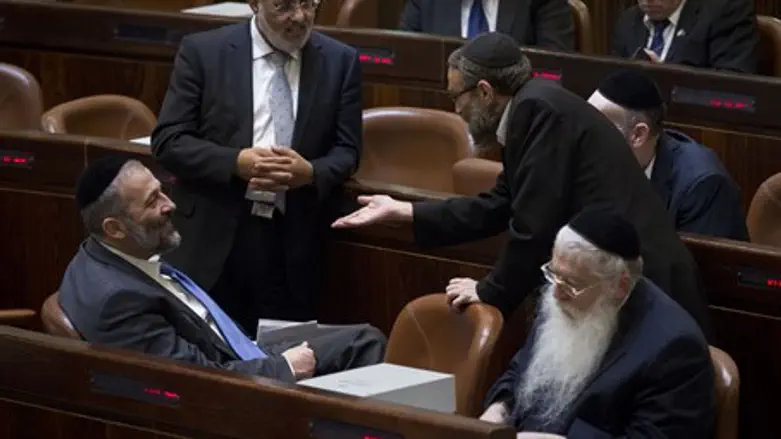
Hareidi women who campaign to join hareidi parties in the Knesset will see their children thrust out of the hareidi school system, a Degel HaTorah (United Torah Judaism faction - ed.) activist threatened Sunday night.
"Every woman who campaigns against the gedolei haTorah (Torah sages) of Israel will make sure her children will not attend hareidi education institutions, and no one will do business with her or work with her, and all of her descendants will be expelled from our schools," Rabbi Mordechai Blau threatened in remarks made to the hareidi media Sunday night.
"I guarantee... to implement all of the above, and the above will also apply to men" who support the women's efforts.
Rabbi Haim Amsalem of the Am Shalem party, who broke away from the hareidi-Sephardic Shas party and which just fell short of the threshold in the last election, responded with a promise to fight sexism in the religious community at large.
"I will work in any way to prevent discrimination against hareidi women," Rabbi Amsalem stated. "We will fight against any sign of racism in general and [sexism against] women in particular."
"It is time that hareidi women are represented in hareidi parties," he urged, "and where there are ideological conflicts - they can't prevent [women] from running with other parties, and certainly not target them and humiliate them [for campaigning]," he continued, referring to hareidi women who have been harassed by extremists for opting to run for non-hareidi parties.
"I will do all that I can to promote hareidi women being represented in the Knesset," he concluded, adding that, in his belief, the threat "does not represent the majority of the hareidi community."
On Sunday, activist Esty Reider-Indorsky announced a campaign for the hareidi parties to allow female candidates, taking to IDF Radio to speak about the discrimination they face despite being "half of the electorate."
During the previous Knesset elections, both Shas and United Torah Judaism stated that men and women "have different roles" in life, dismissing public debate over their refusal to include women in their political parties.
But women in the hareidi community have been held back by both the ban on women's candidacy in their own community's parties and by social stigmas on women in public office - with some candidates facing threats against their and their family's safety over their public roles.
For example, in September 2013, Chairwoman Racheli Ivenboim of the Meir Panim-Co'ah Latet food charities was forced to withdraw her Jerusalem city council campaign after she received an avalanche of threats against her.
Part of the threats were due to the catch-22 situation within hareidi communities: that while women cannot be elected to public positions within hareidi parties, running under a different ticket - in her case, the religious-Zionist Jewish Home party - is seen as a form of betrayal.
Meanwhile, Rabbi Amnon Bazaq, of Yeshivat Har Etzion in Alon Shvut, suggested over the summer during the Presidential elections that if hareidi parties do not begin opening up their ranks to women - after rumors surfaced that they had planned to vote for female candidate Dalia Itzik in that election - they may lose a significant number of votes.
"If this does not happen," he warned, "it will raise questions once again about the ways hareidi leadership manipulate halakha [Jewish law] according to their political needs."
